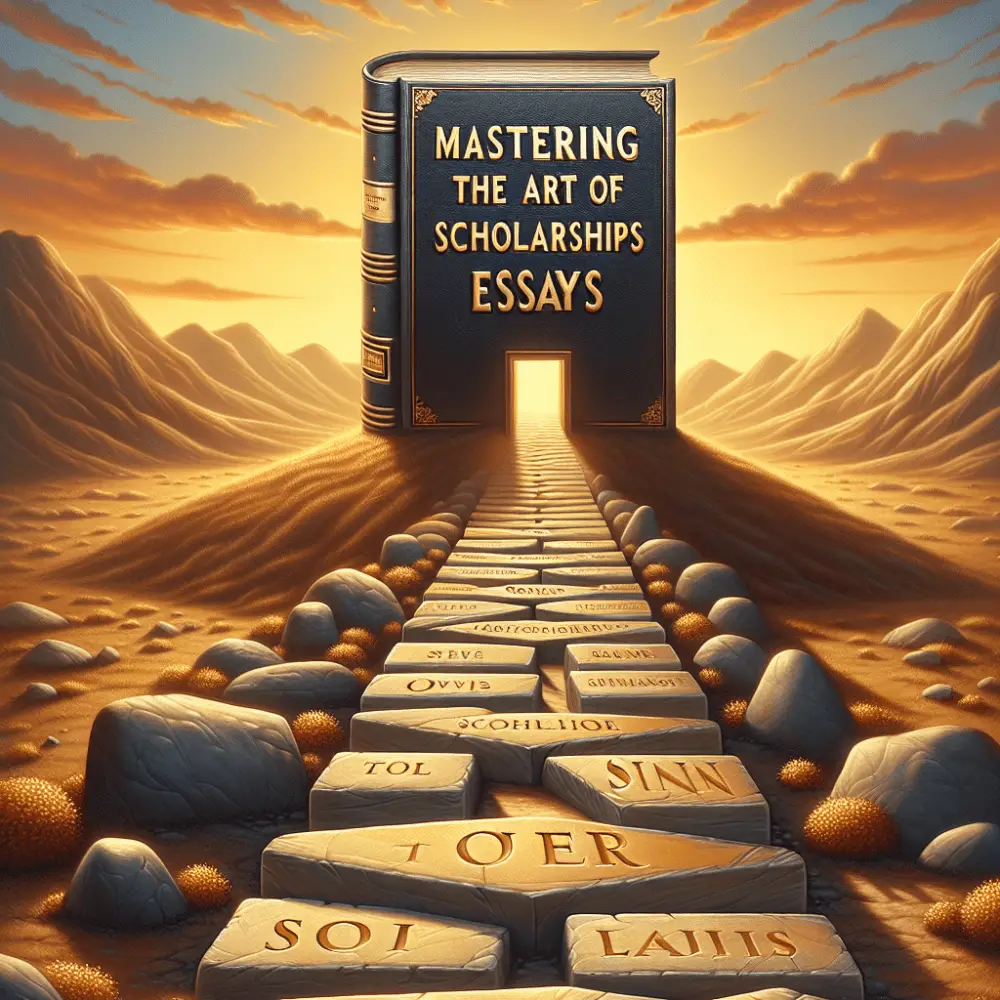
Introduction:
When it comes to pursuing higher education, the cost can often be a major deterrent for many students. However, scholarships offer a pathway to educational triumph by providing financial support and opportunities for deserving students. One crucial aspect of scholarship applications is the essay component, which allows students to showcase their unique qualities, experiences, and aspirations. Mastering the art of scholarship essays can significantly increase the chances of securing funding for your education. In this article, we will explore various strategies, tips, and guidelines that will help you unlock your potential and craft compelling scholarship essays.
The Importance of Scholarship Essays:
Scholarship essays are not just an additional requirement in the application process; they can be a powerful tool that sets you apart from other applicants. These essays offer an opportunity to communicate your personal story, academic achievements, and future goals directly to the scholarship committee. Well-written essays display your writing skills, critical thinking abilities, and passion for your chosen field of study.
1. Understanding the Prompt: A Key Step Towards Success
Before diving into writing your scholarship essay, it is crucial to thoroughly understand the prompt or question provided by the scholarship organization. Take time to analyze and break down the prompt into its different components. Identify key keywords or phrases that should guide your essay’s content.
Once you have a clear understanding of what is being asked of you, create an outline that organizes your thoughts logically. This will ensure that you address all aspects of the prompt comprehensively. Remember to focus on showcasing your uniqueness while addressing the prompt’s requirements simultaneously.
2. Showcasing Your Personality: Be Authentic
One common mistake students make when writing scholarship essays is trying to mold themselves into what they think scholarship committees want to see rather than staying true to themselves. Authenticity is key when crafting these essays as it allows readers to connect with your story genuinely.
Share personal anecdotes that highlight your character traits or experiences that have shaped you as an individual. Be honest about your strengths and weaknesses, as committees appreciate genuine self-reflection. By being authentic, you can showcase your unique perspectives and stand out among other applicants.
3. Highlighting Achievements and Experiences: Be Specific
Scholarship committees want to learn about your accomplishments and experiences that align with their selection criteria. Instead of providing a general overview, focus on specific achievements or situations that demonstrate your skills, commitment, or passion.
For example, if the scholarship is related to community service, provide specific details about your involvement in a particular project and its impact on the community. Use vivid descriptions to paint a picture of your experiences and illustrate how they have shaped you as an individual.
4. Conveying Future Goals: Be Ambitious
Scholarship committees are interested in investing in students who have clear goals for their future. Expressing your ambitions and demonstrating how the scholarship will help you achieve those goals is crucial. Make sure to connect your aspirations with the values or mission of the scholarship organization.
Describe how receiving the scholarship will enable you to pursue specific academic opportunities, such as research projects or internships that align with your career objectives. Showcasing a sense of purpose and determination will leave a lasting impression on the committee members.
5. Craftsmanship: Perfecting Your Writing Skills
Writing skills play a significant role in crafting impactful scholarship essays. The following tips will help improve the overall quality of your writing:
a) Clear and Concise Language: Use simple language that is easily understandable by a wide audience, including younger readers. Avoid complex jargon or unnecessary technical terms unless they are essential to convey your ideas effectively.
b) Active Voice: Utilize active voice instead of passive voice to make your writing more engaging and straightforward.
c) Proofreading and Editing: Take time to proofread your essay for grammar mistakes, typos, or structural issues. Consider enlisting the help of peers or mentors who can provide valuable feedback and suggestions for improvement.
d) A Captivating Opening: Begin your essay with a captivating opening that immediately grabs the reader’s attention. This can be an intriguing anecdote, a thought-provoking statement, or a compelling question.
e) Strong Conclusion: End your essay with a strong conclusion that summarizes your main points and reiterates your passion for the subject matter. Leave readers with a lasting impression of your commitment and potential.
FAQs:
Q: How long should a scholarship essay be?
A: Scholarship essay lengths vary depending on the specific requirements stated by the scholarship organization. However, it is essential to adhere to any stated word count limits. Typically, essays range from 500 to 1,000 words.
Q: Can I reuse my scholarship essay for multiple applications?
A: While it may be tempting to reuse essays for multiple applications, it is advisable to tailor each essay to suit the specific prompt or requirements of each scholarship. Adapting your essay ensures relevance and shows genuine interest in each opportunity.
Q: How do I choose which achievements or experiences to highlight?
A: When selecting achievements or experiences to highlight in your scholarship essay, focus on those that closely align with the values or mission of the scholarship organization. Choose examples that showcase your skills, dedication, and passion for your chosen field of study.
Q: Are there any scholarships specifically for students from low-income backgrounds?
A: Yes, there are numerous scholarships specifically designed to support students from low-income backgrounds. It is important to research and explore these opportunities through various online platforms or by reaching out to financial aid offices at colleges and universities.
Conclusion:
Mastering the art of scholarship essays involves understanding the prompt, demonstrating authenticity, highlighting achievements and experiences, conveying future goals, and perfecting your writing skills. By following these strategies and tips, you can increase your chances of securing scholarships that pave the way towards educational triumph. Remember, each essay is an opportunity to showcase your unique qualities and aspirations, so embrace the challenge and let your words shine.












